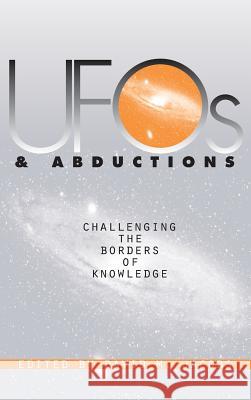UFOs and Abductions: Challenging the Borders of Knowledge » książka
topmenu
UFOs and Abductions: Challenging the Borders of Knowledge
ISBN-13: 9780700610327 / Angielski / Twarda / 2000 / 392 str.
The subject of this breakthrough book is controversial, but its message is simple: the study of UFOs merits the serious attention of the intellectual establishment. Advocating credibility for this much-maligned field of research, historian David Jacobs and his coauthors highlight some of the key events, issues, themes, and theories surrounding this elusive, complex, and compelling subject.
Whether interplanetary tourists, interlopers from a parallel universe, or mere misfirings in the brain, UFOs and "aliens" permeate popular culture. They've made the covers of Time, Life, and the New York Times Book Review; garnered CNN coverage; turned up on Larry King Live and other high-profile talk shows; attracted large audiences for films and television series; and swamped the Internet with thousands of websites and discussion groups. Despite this pervasive presence, few scholars have been willing to study the perplexing phenomena behind these cultural signifiers. Wary of a field that seems tainted by suspect methods and outlandish theories, many have logically stayed away. The relative lack of academic participation, however, creates a vicious circle that prevents the development of standards that would attract greater academic participation and, thus, credibility and funding for the field. Meanwhile, the phenomenon, rather than fading from public awareness, continues to grow and evolve. In response, this volume provides a kind of primer for scholars, skeptics, and others uneasy about investigating this field. Its authors examine the nature of UFO "evidence"; discuss the methodological debates; incorporate research from science, history, mythology, and psychology; and highlight the reactions of the government and military from the Cold War to the present. It also brings together for the first time in one book three bestselling authors--Jacobs, Budd Hopkins, and Pulitzer Prize winner John Mack--widely known for their writings on the highly controversial "alien abduction" phenomenon.










